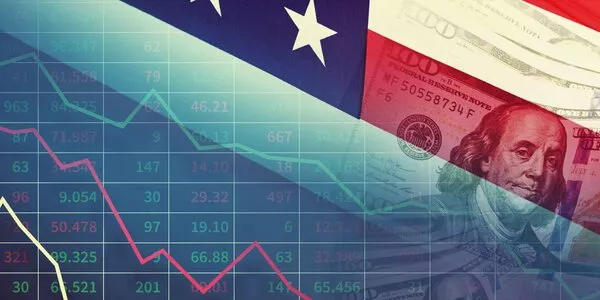
Weekly Update - French elections: fears of resurgent political risk in the Euro area
Doubts resurface ahead of first round of voting. The victory of Emmanuel Macron at the presidential elections seemed until recently pretty certain, but recent polls show signs of a shrinking gap. The possibility that another candidate might win has increased financial markets volatility. The French equity market has fallen in recent days and Euro area sovereign bond markets - including France - have seen their spreads widen over the German benchmark. The widening has been modest so far, but still enough to reawaken in investors’ minds the not-so-distant debt crisis among Euro area periphery countries. Uncertainty around the French election reminds everyone of the fragile nature of Europe's political balancing act, which the Ukraine war could either help steady or rattle further.
The Ukraine war has sent Euro area household confidence plummeting (chart 1). The fall is similar in scale to that seen in the first Covid lockdown. Then, the economic outlook was highly uncertain but confidence was gradually restored by decisive and coordinated political action across the zone, echoed by similar measures in all developed economies. Major stimulus packages were rolled out to stop companies going under, shore up household incomes and keep monetary conditions highly accommodative. Today, the war raises new economic uncertainties, with households feeling the direct impact of rising commodity prices. While we have heard some major political announcements to address this, the messaging seems to be less strong and less consistent across different Euro area countries.
The signal from the French elections should be a red flag to all Euro area authorities. Recent doubts surrounding the French presidential election notably reflect the slump in confidence among French households in the new economic environment. But, the French economy has actually been exceptionally resilient so far. It remains the first European country to have got back to pre-Covid levels of production. French households have seen the strongest growth in their real incomes thanks to a dynamic labour market and inflation that is well below that of neighbouring countries (chart 2). France's inflationary exception (5.2% in March, compared to 7.6% in Germany, 7% in Italy and 9.8% in Spain) reflects an energy mix that is less vulnerable to price rises (thanks to the importance of nuclear energy) and bigger state subsidies (either direct or via state-owned power utility EDF). This does not mean French citizens have nothing to fear from the economic environment, particularly as these subsidies come out of already high levels of public debt. But it is a warning sign that if French citizens are worried and willing to vote their concerns, we have reason to fear a reaction in neighbouring countries whose economies are, at the moment, looking a lot less favorable.
Also, in the main events of the week, we chose to talk about the minutes of the ECB's and Fed's mid-march meeting.




